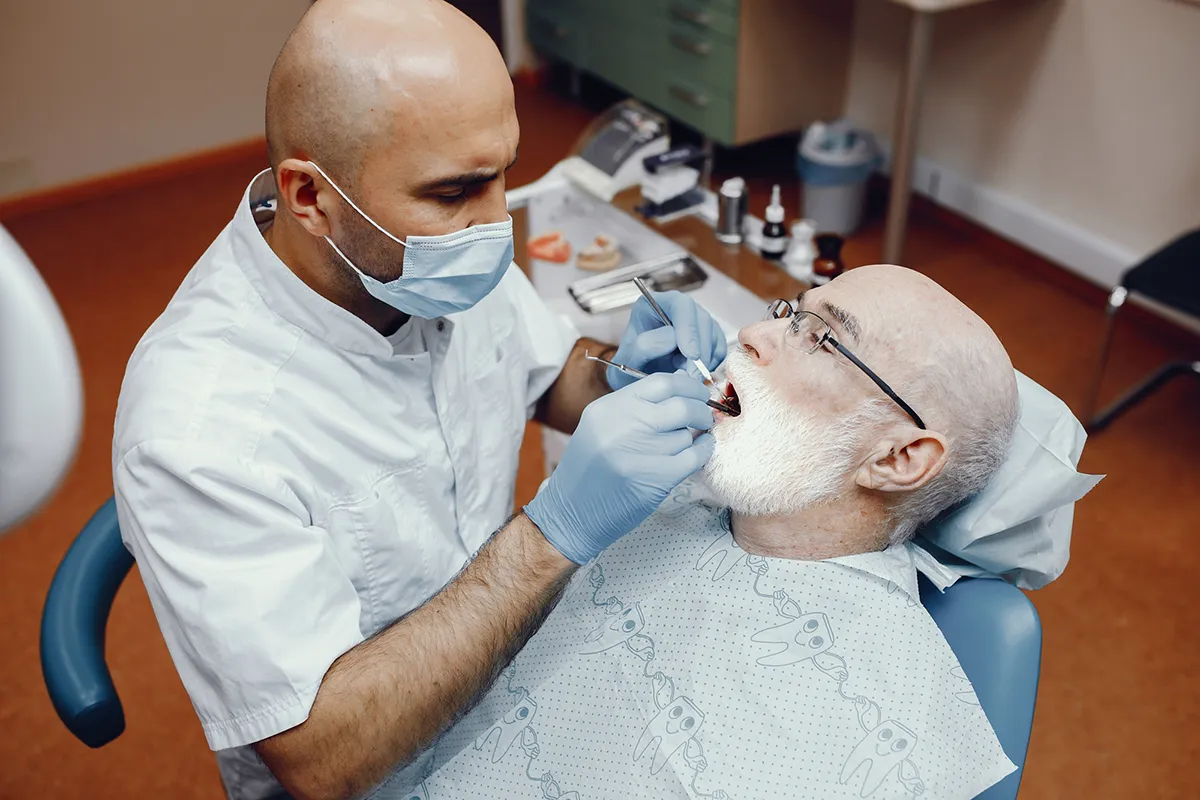Dental bridges are a modern solution in dentistry that can transform the lives of people with missing teeth. These dental restorations fill the gaps in smiles and boost confidence. But who can benefit from this treatment? Let's explore dental bridges and discover the different people who can experience their excellent benefits.
Ideal Candidate for Dental Bridges
Dental bridges offer an effective solution for individuals with missing teeth, helping them regain their smile, restore oral functionality, and enhance overall oral health. While the suitability of dental bridges varies from person to person, specific characteristics make someone an ideal candidate for this treatment option. Let's explore the qualities of a perfect candidate for dental bridges:
- Missing Teeth:
The primary requirement for dental bridges is having one or more missing teeth. Whether caused by injury, decay, or other oral health issues, the presence of a gap due to missing teeth is the primary concern that dental bridges address.
When a person has one or more missing teeth, it can affect his ability to chew properly, speak clearly, and even his self-confidence. Dental bridges are custom-made prosthetic devices that bridge the gaps created by missing teeth.
They consist of artificial teeth called pontics, held in place by dental crowns attached to the neighboring teeth. These pontics restore the appearance of a complete smile and help maintain proper alignment of the remaining teeth. By filling the gaps, dental bridges provide functional and aesthetic benefits, improving oral health and overall well-being.
- Good Oral Health:
An ideal candidate for dental bridges should have a generally healthy mouth. It includes healthy gums and sufficient bone structure to support the bridge. Any existing dental health issue, such as gum disease or decay, should be treated before dental bridge placement.
Healthy gums are crucial because they support the bridge and help prevent gum disease, which can undermine the success of the treatment. Good bone structure is also necessary to ensure the stability and longevity of the bridge.
Fixing oral health issues, such as gum disease, can be achieved through treatments like scaling and root planing or dental fillings. Additionally, regular oral hygiene practices, including brushing twice daily, flossing daily, and using mouthwash, should be followed to maintain good oral health and prevent future problems.

- Stable Oral Environment:
The surrounding teeth adjacent to the gap play a vital role in supporting the dental bridge. These teeth, known as abutment teeth, serve as anchors for the bridge and provide stability. Therefore, these teeth must be stable without severe decay or structural damage.
If the adjacent teeth have significant dental issues, such as large cavities or extensive dental work, they may be unable to support the bridge adequately. In such cases, alternative treatments, such as dental implants or partial dentures, may be considered. A thorough examination by a dental professional will help determine the suitability of the adjacent teeth for supporting the bridge.
- Commitment to Oral Hygiene:
Proper oral hygiene is crucial for the long-term success of dental bridges. An individual seeking dental bridges should demonstrate a commitment to practicing good oral hygiene habits. It entails brushing the teeth at least twice daily using fluoride toothpaste. Daily flossing is necessary to eliminate plaque and food particles lodged between the teeth and around the bridge.
Additionally, rinsing with an antimicrobial mouthwash can help maintain oral hygiene. Regular dental check-ups and professional cleanings play a vital role in monitoring the health of the dental bridge and the remaining natural teeth. These routine visits enable dentists to identify and address any potential issues promptly.
By adhering to good oral hygiene practices, individuals can effectively prevent gum disease, tooth decay, and other oral health complications that could compromise the longevity and functionality of the dental bridge. Taking proactive measures to maintain oral hygiene is vital to ensuring the ongoing success of dental bridges and promoting overall oral health.
- Absence of Uncontrolled Teeth Grinding or Clenching:
Excessive teeth grinding or clenching can damage dental bridges. The extreme forces generated by bruxism can stress the bridge and the supporting teeth, leading to fractures, looseness, or even dislodgement of the bridge. Therefore, individuals with uncontrolled bruxism may not be ideal candidates for dental bridges.
Treating bruxism before considering dental bridges may be necessary. Using a custom-made nightguard or splint can help protect the teeth and bridge from the effects of grinding or clenching.
- Realistic Expectations:
An ideal dental bridge candidate must have realistic treatment outcome expectations. While dental bridges can significantly improve oral function and aesthetics, they have limitations. For example, the bridge may not replicate the exact feel of natural teeth. It may take some time to get accustomed to the presence of the bridge in the mouth.
Additionally, the lifespan of a dental bridge can vary depending on various factors such as oral hygiene practices, overall oral health, and the forces exerted on the bridge during chewing. A thorough discussion with a dental professional can help set realistic expectations and provide a comprehensive understanding of the benefits and limitations of dental bridges.
Dental bridges offer a long-lasting solution for replacing missing teeth. They can give you a functional and beautiful smile for years with proper care.
Discover the Benefits: Who Can Benefit from Dental Bridges?
Dental bridges can benefit individuals who have one or more missing teeth. They "bridge" the gap created by the missing teeth and reinstate the functionality and appearance of the mouth. Here are some specific cases where dental bridges can be beneficial:

- Individuals with missing teeth: Dental bridges are a perfect option for people missing teeth due to injury, decay, or other oral health issues. Bridges can fill the gaps, preventing the remaining teeth from shifting out of position, improving the ability to chew and speak correctly, and restoring the smile's aesthetics.
- Patients not eligible for dental implants: Dental implants are an alternative option for replacing missing teeth. However, only some are suitable candidates due to insufficient bone density or health conditions. In such cases, dental bridges can be a viable treatment option.
- Individuals seeking a non-surgical solution: Dental bridges do not require surgery like dental implants. Some individuals may prefer a non-invasive approach to tooth replacement, making dental bridges a suitable choice.
- People looking for a cost-effective option: Dental bridges are generally more cost-effective than dental implants. They provide a durable and functional solution for tooth replacement while being more budget-friendly.
- For those who desire a quicker treatment option, Dental bridge placement typically requires fewer dentist visits than dental implants. It can be advantageous for individuals seeking a faster tooth replacement solution.
A qualified dentist or prosthodontist should determine the suitability of dental bridges for each individual. They can evaluate your oral health issues and recommend the appropriate treatment plan.
Concluding Thoughts
Dental bridges are effective for individuals with missing teeth, offering functional and aesthetic benefits. By addressing the primary concern of missing teeth, dental bridges restore the ability to chew properly, speak clearly, and regain self-confidence.
However, only some may be ideal candidates for dental bridges. Before considering this treatment, it is essential to have good oral health, including healthy gums and bone structure. Treating any existing oral health issues beforehand is necessary to ensure a stable foundation for the bridge.
Contact your Pinole dentist, Azadeh Hosseini, DDS, or Ghazal Hosseini, DDS, at Top Pinole Dental to learn about Candidates for Dental Bridges.
Resource:
Learn More About Porcelain Bridges
*This media/content or any other on this website does not prescribe, recommend, or prevent any treatment or procedure. Therefore, we highly recommend that you get the advice of a qualified dentist or other medical practitioners regarding your specific dental condition.*
1500 Tara Hills Dr., Suite 104A, Pinole, CA 94564
Monday – Saturday 8:00 AM to 5:00 PM
